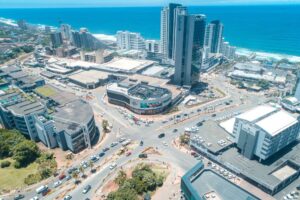The DA in KwaZulu-Natal (KZN) has today opposed the Public Procurement Bill during a special Sitting of the provincial Legislature.
While the ANC is desperately trying to push the Bill through the system – for use as a campaign tool – the reality is that they have held back on it for too long because they also understand that it is flawed. The Bill will not meet constitutional muster and will be challenged.
The Bill proposes centralisation of Procurement processes. Meanwhile, arguments against the proposed legislation include;
• The prioritisation of Section 217.2 of the Constitution above Section 217.1.
• The issue of “value for money” being over-ridden by other factors;
• The centralisation of aspects of the Procurement in the National Sphere, essentially removing the rights and responsibilities of provinces and municipalities. This is potentially unconstitutional in terms of Sections 40, 41, 213, 215 and 217, with others also threatened
• The Bill gives the Minister considerable powers with no mechanism for meaningful oversight, with Section 32 allowing the Minister to decide on oversight access
• An alarming Local Content aspect which allows the Minister to determine from what other countries goods are to be procured and;
• Dispute resolution mechanisms are complex and potentially impractical.
Furthermore, there must be clarity on whether the Bill replaces the framework released in 2023, whether it is supplementary, or whether a new framework will follow subsequent to Presidential approval.
The Harvard Growth Lab warned in a recent report that preferential procurement was not achieving the desired outcome and had contributed to a collapse of state capacity, undermining economic inclusion rather than giving preference to previously disadvantaged groups.
In a 2023 paper, the International Monetary Fund (IMF) estimated that preferential procurement raises government costs for goods and services by 20%, which can be around 3% of GDP.
Speedy transformation requires a properly and efficiently run government. The whole purpose of government is to provide opportunity for those who cannot do so for themselves.
Interference in the system through cadre deployment and preferential procurement – not based on value for money – makes government ineffective and expensive. It benefits only a few cadres and business owners at the expense of many other citizens that need assistance.
The DA alternative to the ANC’s Public Procurement Bill can be found in its Economic Justice and Social Impact Policies, which are in line with the United Nation’s Sustainable Development Goals. This means a tender system based on value for money and capability to get the job done, for the benefit of all South Africans.
When KZN’s people go to the polls on 29 May, they will have the opportunity to rescue our province from a self-serving ANC government and install a new government committed to working hard for them.









